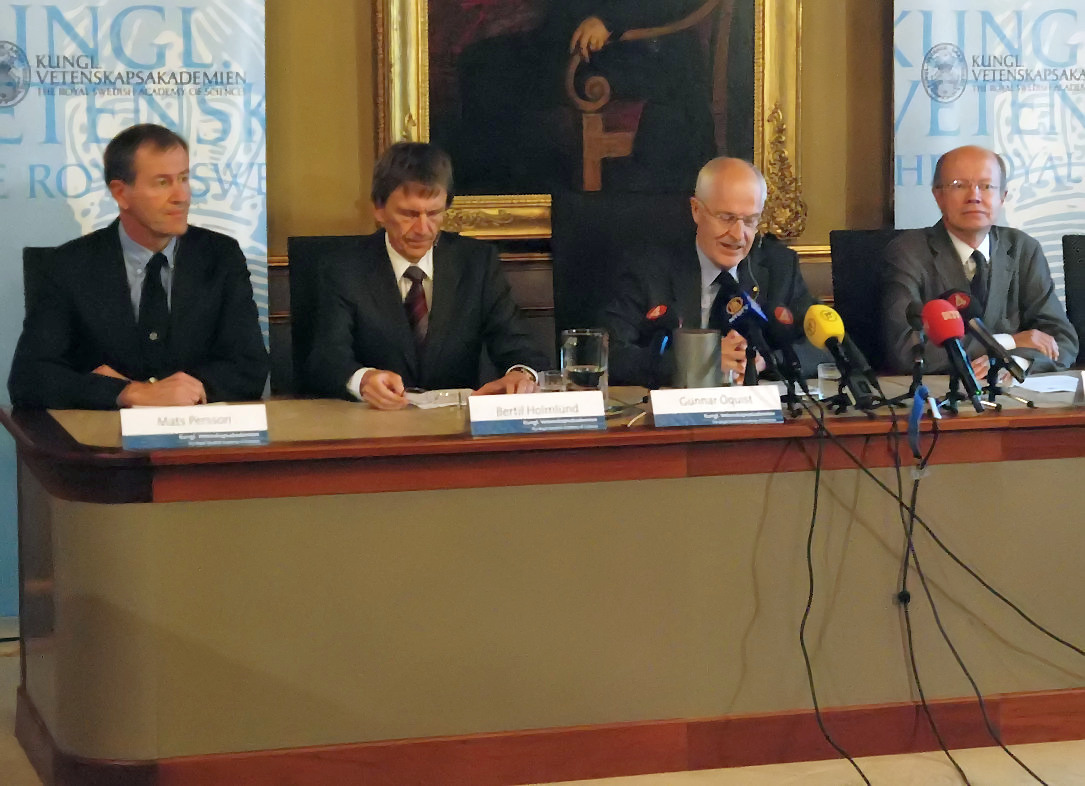Image Soure: Wikimedia.org
Last Monday, Prof. David Card, Prof. Joshua Angrist and Prof. Guido Imbens were awarded with the Sveriges Riksbank Prize in Economic Sciences in Memory of Alfred Nobel, also known as the Nobel Memorial Prize in Economic Sciences. The three laureates of this year have significantly contributed to the development of more accurate methods in social sciences by pioneering natural experiments. These natural experiments consist of observing changes in public policy or in strategic contextual changes to improve the understanding of these effects[1].
One of the most notorious research was conducted by Card in the early 1990 and observed the effects of a minimum wage increase in fast-food sector in New Jersey as a natural experiment. The result of this research upended that such increases should lead to job losses, as previously thought among economics scholars (Card & Krueger 1993). Another study focused on the impact of immigration from Cuba to Miami, and Card observed the absence of negative wage or labour effects for Miami residents with low levels of education. The main challenge implicit in natural experiments is how to interpret the data and how to establish causality. In this sense, Prof. Angrist and Prof. Imbens solved methodological problems to show that precise conclusions about cause and effect could be drawn from them in the mid-1990s, thus, significantly complementing Prof. Card’s work (Angrist & Piscke 2008, Imbens & Wooldridge 2009). Initially, Angrist and Krueger (1991) performed their research on the benefits of education in people’s income. That study initiated an avenue of research that Prof. Angrist and Prof. Imbens later carried out to create more accurate methods to rethink and address natural experiments. Angrist and Imbens (1996) created a method to identify the consequences from an intervention in people’s behaviour — such as a subsidy that might encourage people to buy solar panels — even when the researcher cannot control who participates in the natural experiment, and even if the impact varies across individuals. They also proposed a transparent framework for this kind of research to create more rigor and more trust in this approach (Angrist, Imbens & Rubin 1996).
The work of Prof. Card and Prof. Krueger challenged and effectively reshaped classic economic thinking on relevant issues as the establishment and raise of minimum wages or immigration. But what is especially inspiring for us is the observation of strategic events as natural experiments and the establishment of a framework to conduct them. As the circular economy advances in its implementation, there will be an increasing need to conduct natural experiments to understand the effectiveness of the policies that aim to implement it. In this sense, the contribution of the laureates of the Nobel Memorial Prize in Economic Sciences will allow us to conduct rigorous research in our future academic careers.
References
Angrist, J. D., Imbens, G. W., & Rubin, D. B. (1996). Identification of causal effects using instrumental variables. Journal of the American statistical Association, 91(434), 444-455.
Angrist, J. D., & Keueger, A. B. (1991). Does compulsory school attendance affect schooling and earnings?. The Quarterly Journal of Economics, 106(4), 979-1014.
Angrist, J. D., & Pischke, J. S. (2008). Mostly harmless econometrics. Princeton university press.
Card, D., & Krueger, A. B. (1993). Minimum wages and employment: A case study of the fast food industry in New Jersey and Pennsylvania.
Imbens, G. W., & Wooldridge, J. M. (2009). Recent developments in the econometrics of program evaluation. Journal of economic literature, 47(1), 5-86.
[1] https://www.nobelprize.org/prizes/economic-sciences/2021/summary/

